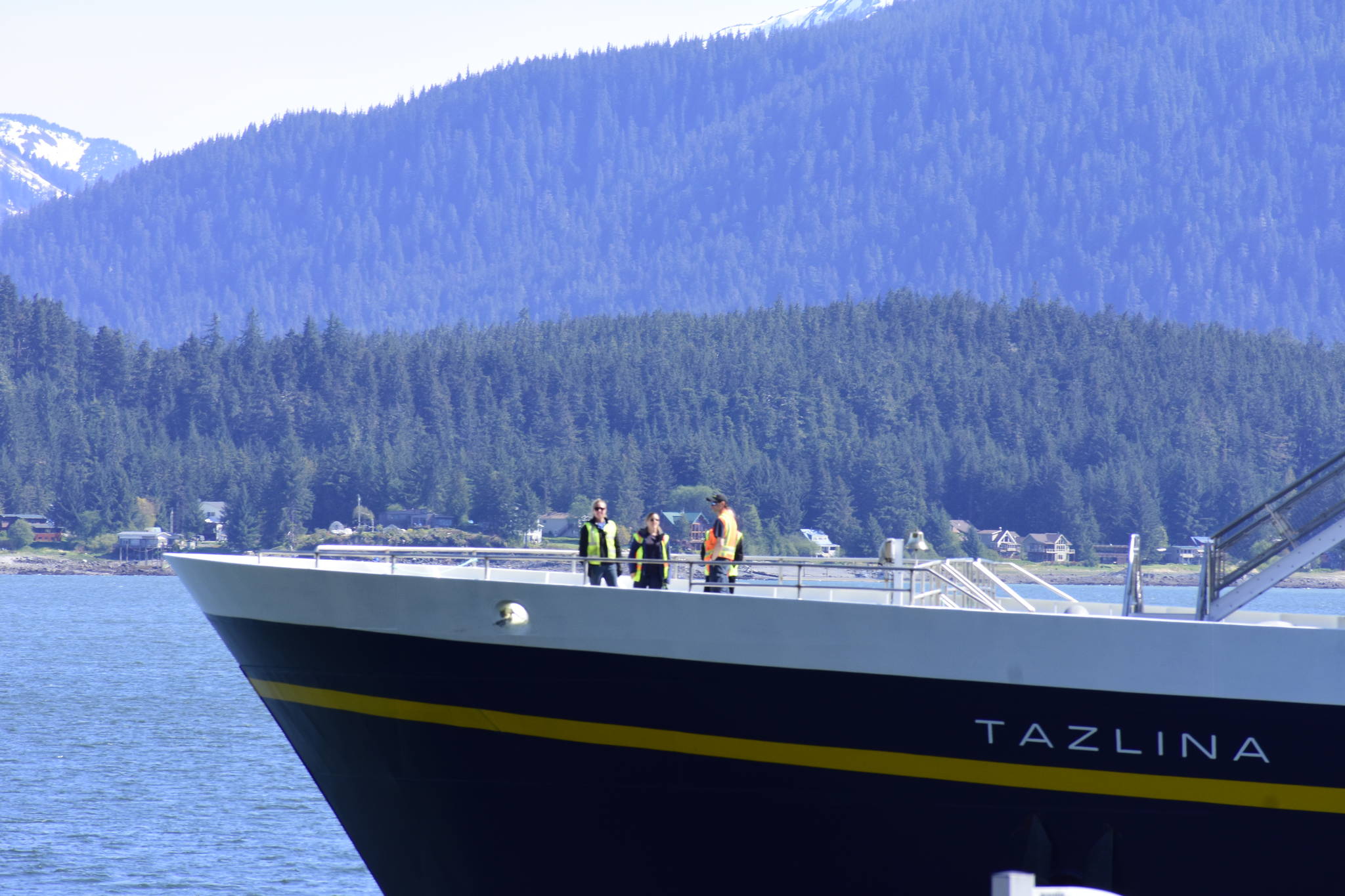Though the financial picture of the Alaska Marine Highway System is grim, advocates say there’s growing support for the system and better understanding of the role ferries play in statewide commerce.
“We have a commitment to the Alaska Marine Highway System, we are in no way looking to get rid of it,” said Rob Carpenter, deputy commissioner of the Alaska Department of Transportation and Public Facilities, during Thursday’s virtual session of the Southeast Conference Annual Meeting.
But that came with the recognition the system is in dire financial straits, he said.
“There’s a lot of pressure on the state budget, it’s been going on a few years. It’s been challenging, and there’s no signs of letting up,” Carpenter said.
The coronavirus pandemic had cost AMHS roughly $45 million, he said, which has led to a winter schedule “no one is happy with, including us.”
Limited capacity and other health precautions had limited AMHS’ revenues at a time when many of the ships were just finishing repairs, Carpenter said. But even with current travel restrictions, the system is already seeing an uptick in passengers, he said.
In a discussion following presentations by DOT and the Inter-Island Ferry Authority, attendees floated various ideas for how to reform the ferry system. Results from a reshaping work group are expected at the end of this month, but some attendees expressed skepticism the report would produce meaningful commentary.
[Congressional delegation: Resource development can be lifeline for Southeast]
In light of the state being an unreliable partner when it comes to funding AMHS, Petersburg business owner Dave Kensinger suggested creating a regional ferry system not reliant on the state.
“I think if we don’t do anything, I think I know where this is all going to go,” he said.
The two Southeast lawmakers in attendance, however, we’re quick to respond.
“Let’s not jump off the cliff just yet,” said state Sen. Jesse Kiehl, D-Juneau. “We got a new governor, and he did propose shutting the marine highway down.”
Through that fight, AMHS found some new friends, Khiel said. Lawmakers from other parts of the state became more aware of the economic benefits the ferries bring not just to Southeast but to other parts of the state as well.
“They saw what happened last winter to Southeast. It was a brutal and ungodly education process, but it was an education process,” he said. “We just came out of a fight for its existence.”
Ketchikan’s Independent Rep. Dan Ortiz also cautioned against regionalizing the ferry system, saying the alliance between all coastal lawmakers served by the ferries was crucial to moving legislation forward.
“In the end, it’s always going to be the Legislature to make the final decision,” Ortiz said, and even then whatever lawmakers appropriate to the ferry has to be approved by the governor. “I would hesitate in trying to regionalize or subregionalize the effort,” he said.
Educating the rest of the state on the merits of the system was something mentioned by Alaska’s congressional delegation when they spoke to the meeting Wednesday. Rep. Don Young, R-Alaska, said the delegation had worked to secure federal funding for highways, but the state needs to start thinking of AMHS as part of the highway system.
If bringing financial stability to a public service which must be subsidized was what’s needed, it would be a good idea for the system to set up it’s own endowment fund, suggested Ketchikan-based economic development strategist.
“Where you get the money for that I don’t know. (Alaska Industrial Development and Export Authority) seems to have a lot of money,” she said. “(Certain) hostility toward the ferry system comes from deep-seated opposition to public transportation from certain sectors. If government is a fickle partner, it needs to have some sort of independent stable source.”
Still, the $45 million hole in the ferry’s budget means DOT would likely have to ask the Legislature for a supplemental budget, Carpenter said.
• Contact reporter Peter Segall at psegall@juneauempire.com. Follow him at @SegallJnuEmpire.

